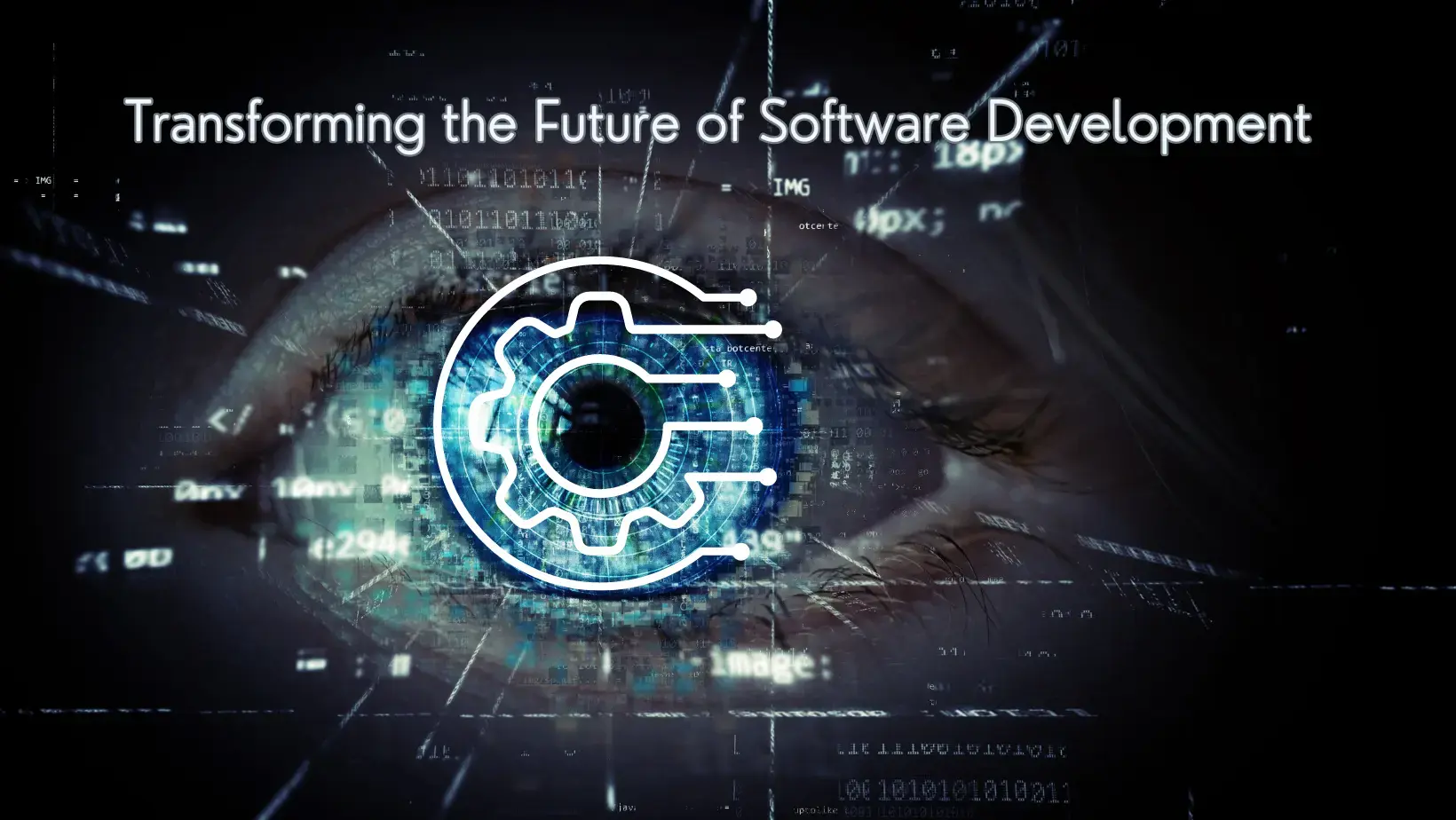AI Integration: Transforming the Future of Software Development

Table of Contents
- What is AI Integration?
- The Impact of AI on the Future of Software Development
- Key Benefits of AI Integration in Software Development
- a. Augmented Efficiency:
- b. Elevated Code Quality:
- c. Personalized User Experiences:
- d. Expedited Development Cycles:
- Understanding the Role of Machine Learning in Software Development
- a. Predictive Coding:
- b. Automated Testing:
- c. Intelligent Automation:
- d. Natural Language Processing:
- Practical Applications of AI in Software Development
- a. Healthcare Software Development:
- b. E-commerce and Recommendation Systems:
- c. Financial Software:
- d. Smart Manufacturing:
- Challenges and Considerations in Integrating AI into Software Development
- a. Data Privacy and Security:
- b. Skill Gaps:
- c. Ethical Considerations:
- Best Practices for Successful AI Integration in Software Development
- a. Invest in Training:
- b. Prioritize Data Governance:
- c. Start with Small Projects:
- d. Regularly Update AI Models:
- Future Trends in AI Integration and Software Development
- a. AI-DevOps Integration:
- b. Explainable AI:
- c. AI-driven CI/CD:
- d. AI-powered Code Generation:
- Why Cloudester?
- Conclusion
- FAQ-s
- 1. What does AI integration entail in the realm of software development?
- 2. How is AI transforming the future landscape of software development?
- 3. What specific benefits does AI integration bring to software development processes?
- 4. What are some practical applications of AI within software development workflows?
- 5. What challenges do developers face when integrating AI into software development?
- 6. What are some best practices for effectively integrating AI into software development projects?
In the dynamic realm of software development, the integration of artificial intelligence (AI) stands as a transformative force, fundamentally altering how applications are conceived, constructed, and maintained. Consequently, this comprehensive exploration delves into the nuanced dimensions of AI integration and its profound impact on the future of software development. Moreover, it highlights key benefits, the intricate role played by machine learning, practical applications across various domains, inherent challenges, best practices essential for seamless integration, and the future trends that promise to redefine the very fabric of software engineering.
What is AI Integration?
AI integration represents a major paradigm shift that involves the seamless infusion of AI capabilities into software development. Importantly, it moves beyond mere adoption and instead encapsulates a holistic approach where advanced technologies such as machine learning, natural language processing, and computer vision converge to enhance every stage of the development lifecycle.
In essence, AI integration is about forming an intelligent symbiosis between human ingenuity and machine efficiency. Thus, developers equipped with sophisticated AI tools can augment their creative capacities and focus on higher-order problem-solving, while AI handles routine and repetitive tasks. Consequently, this partnership not only ensures faster development cycles but also facilitates a qualitative leap in the entire software creation process.
The Impact of AI on the Future of Software Development
The emergence of AI in software development has triggered a profound transformation, redefining traditional workflows across the industry. Specifically, AI-enhanced tools and frameworks have reshaped processes by automating repetitive tasks and empowering developers to channel their creativity into more complex and innovative endeavors. As a result, modern development teams experience accelerated cycles, superior code quality, and enriched user experiences.
Furthermore, the influence of AI extends beyond mere development and encompasses the entire software lifecycle. From the conceptualization of ideas to post-deployment support, artificial intelligence brings unparalleled efficiency and predictive foresight. Therefore, development teams equipped with AI find themselves consistently at the forefront of innovation, creating solutions that not only meet user demands but anticipate them as well.
Custom AI Software Development Solution For Enterprises
Key Benefits of AI Integration in Software Development
Custom AI Software Development Solution For Enterprises
a. Augmented Efficiency:
AI software development companies are increasingly leveraging advanced technology integration to automate repetitive tasks, thereby driving a significant surge in overall development efficiency. As a result, valuable human resources are freed up for more strategic work. For example, processes such as code reviews, bug fixes, and testing, once manual and time-consuming, are now expedited through automation. Consequently, this allows developers to focus on designing elegant solutions rather than becoming caught in coding minutiae.
b. Elevated Code Quality:
AI-powered tools now meticulously scrutinize code, identifying errors, security vulnerabilities, and ensuring adherence to coding best practices. Subsequently, this leads to a higher echelon of software quality. Moreover, automated code analysis provides not only functional software, but also solutions that are robust and resilient across diverse environments.
c. Personalized User Experiences:
In addition, AI now facilitates the creation of intelligent applications that can tailor user experiences according to individual preferences and behavioral patterns. By analyzing user data, these systems can recommend features or adapt interfaces, so software goes beyond generic standards and resonates on a personalized level. Thus, overall user satisfaction and engagement see notable improvements.
d. Expedited Development Cycles:
Automated testing, code generation, and debugging, each fueled by artificial intelligence, collectively contribute to shorter development cycles without compromising on robustness. Thanks to the time saved on routine tasks, development teams can iterate more quickly and respond with agility to shifting requirements and evolving market dynamics.
Understanding the Role of Machine Learning in Software Development
Machine learning, as the linchpin of AI integration, plays a diverse and multifaceted role within software development. Armed with the ability to analyze large datasets, ML algorithms discern patterns, predict future trends, and continuously refine software performance. Therefore, in the development environment, ML manifests through predictive coding, bug detection, and the orchestration of intelligent automation.
a. Predictive Coding:
AI algorithms, for instance, examine existing codebases and predict subsequent lines of code, thereby accelerating the coding process. Not only does this boost development speed, but it also aids in maintaining consistent coding standards and reducing the likelihood of errors.
b. Automated Testing:
AI-driven testing tools simulate user interactions, discover bugs, and ensure robust quality assurance within software products. Additionally, ML algorithms, which are integral to data analytics in AI, can adapt as functionality evolves, ensuring that test coverage remains comprehensive even as products change.
c. Intelligent Automation:
AI-infused automation tools can now seamlessly handle routine tasks, ranging from deployment to monitoring. As these systems learn from past process data, they steadily enhance automation strategies over time. Thus, both efficiency and process optimization are achieved across the development pipeline.
d. Natural Language Processing:
AI’s advanced natural language processing (NLP) capabilities help foster more effective communication between developers and end-users. Beyond chatbots, NLP extracts actionable insights from customer feedback and simplifies the creation of user documentation. This ultimately makes software more accessible and user-friendly than ever before.
In summary, the convergence of machine learning and other AI capabilities is driving an era of continuous and iterative innovation. As the software development landscape evolves, this trend is increasingly fundamental to industry progress and competitive advantage.
Practical Applications of AI in Software Development
Real-world applications of AI in software development are remarkably broad, impacting every stage of the process. As a result, AI is no longer merely a theoretical concept; it has become an essential, practical tool across industries, enhancing efficiency, accuracy, and innovation.
a. Healthcare Software Development:
In healthcare, AI-driven analytics enable use cases like medical image analysis, diagnostics, and drug discovery. For instance, machine learning powers image recognition software that detects anomalies, predicts disease trajectories, and contributes to breakthrough advances in personalized medicine.
b. E-commerce and Recommendation Systems:
Meanwhile, in e-commerce, AI and data analytics drive powerful recommendation algorithms that suggest products based on browsing and purchase history. By analyzing individual user behavior and current trends, these systems create a more tailored and engaging shopping experience.
c. Financial Software:
Financial software applications leverage AI integration for essential functions like fraud detection, risk assessment, and algorithmic trading. Accordingly, machine learning models analyze immense volumes of financial data in real-time, ultimately identifying suspicious activity or forecasting market trends for better investment decisions.
d. Smart Manufacturing:
Within manufacturing, AI enables predictive maintenance, quality assurance, and process optimization by using data from sensors and equipment. Therefore, companies can predict maintenance needs in advance, mitigate downtime, and optimize operational costs with greater precision.
These examples underline the extraordinary versatility and practical value of AI integration in software development. Whether it is enhancing medical diagnostics, revolutionizing retail, refining financial processes, or optimizing manufacturing, AI is the engine behind modern software innovation.
Challenges and Considerations in Integrating AI into Software Development
Nonetheless, while the benefits of AI are substantial, it is also essential to address the inherent challenges of integration. Thoughtful planning and awareness are the keys to success in this domain.
a. Data Privacy and Security:
The necessity to process sensitive data requires absolute attention to privacy regulations and robust security protocols. Because AI models are trained on vast datasets, developers must maintain compliance with data protection laws and ensure strong safeguards against breaches. Striking a balance between extracting insights and keeping information secure remains a constant challenge.
b. Skill Gaps:
Integrating AI calls for upskilling or hiring team members who possess specialized AI knowledge. Given this need, organizations transitioning to AI-enhanced workflows must invest in continuous training and professional development. These programs, focused on both data analytics and general AI capabilities, prepare the workforce to embrace emerging tools and practices.
c. Ethical Considerations:
Best Practices for Successful AI Integration in Software Development
a. Invest in Training:
Providing developers with ongoing opportunities to train in AI platforms is key. Not only does regular upskilling build core expertise, but workshops and access to relevant resources equip teams to adapt as AI technologies evolve. Thus, fostering a culture of continuous learning ultimately prepares developers for the complexities of future software demands.
b. Prioritize Data Governance:
By establishing rigorous data governance practices, teams ensure the ethical and secure use of data within AI-driven projects. This includes defining clear data ownership, applying granular access controls, and adhering to legal requirements. The ongoing collaboration between robust governance and advanced analytics truly forms the bedrock for responsible innovation in artificial intelligence.
c. Start with Small Projects:
Starting out with contained, manageable projects allows development teams to gain experience and build confidence. This phased approach provides a safe environment for learning and iteration, simultaneously mitigating risks associated with widespread implementation. Over time, these smaller projects serve as a springboard for more seamless and scalable AI integration efforts.
d. Regularly Update AI Models:
Continual refinement and update of AI models is essential to long-term effectiveness. By routinely enhancing existing models with the latest advances in AI and analytics, organizations sustain their competitive edge and future readiness. In an ever-evolving technology landscape, such proactive updates ensure accuracy, relevance, and reliability across all development efforts.
Future Trends in AI Integration and Software Development
a. AI-DevOps Integration:
Looking forward, collaboration between AI and DevOps will revolutionize synergy between development and operations. Through advanced platforms, artificial intelligence and data analytics enhance the DevOps pipeline with predictive automation and intelligent monitoring, leading to a more efficient and responsive software ecosystem.
b. Explainable AI:
A growing emphasis on transparency is prompting the development of increasingly interpretable AI models. Now, understanding and explaining AI decision processes becomes more critical, especially in high-accountability sectors. Furthermore, the intersection of data analytics and explainability fuels trust and ensures responsible algorithm deployment.
c. AI-driven CI/CD:
AI-powered automation is rapidly becoming integral to Continuous Integration and Continuous Deployment processes. By merging data analytics with dynamic AI testing and deployment strategies, organizations can accelerate the release of high-quality software, adapting swiftly to technological change and rising user expectations.
d. AI-powered Code Generation:
In the ongoing evolution of development, advanced AI models are now generating substantial portions of code, significantly reducing manual programming effort. As this trend unfolds, automating routine programming tasks will further streamline workflows, boosting productivity while maintaining rigorous standards of quality and security.
These emerging trends highlight the deepening relationship between AI, software development, and analytics. Not only is efficiency improved, but modern software ecosystems are becoming more transparent, adaptable, and dynamic, driven by continuous feedback between intelligence and innovation.
Why Cloudester?
In the age of AI-driven software development, choosing the right partner is more important than ever. Cloudester stands out due to its depth in AI integration and unwavering commitment to innovation. Leveraging expertise across platforms, analytics, and advanced programming methods, the team ensures seamless incorporation of machine intelligence. By embracing challenges and best practices while adapting to new trends, Cloudester guides clients on a transformative journey that fuses human skill with machine efficiency.
Furthermore, for businesses seeking reliable USA software development services, Cloudester is a compelling choice as it navigates complex integration and delivers sustainable value across all stages of development.
Conclusion
The integration of artificial intelligence stands as a truly transformative force, reshaping every aspect of how applications are ideated, built, and evolved. The dynamic interplay between AI and software engineering continues to propel progress and elevate industry standards. Faced with challenges, from privacy concerns to the need for ongoing training, teams are encouraged to adopt best practices and remain alert to the latest trends. Ultimately, the progress from predictive coding to AI-enhanced CI/CD pipelines demonstrates remarkable potential across industries, especially as personalized user experiences become the new norm.
Anticipating future trends, seamless DevOps collaboration, explainable models, and automated code generation stand out as critical milestones. Regardless of obstacles, the fusion of human expertise and machine capability marks not just a paradigm shift, but an evolutionary leap that will define the next era of software innovation.
FAQ’s
1. What does AI integration entail in the realm of software development?
AI integration in software development represents a holistic shift. Specifically, it seamlessly infuses capabilities such as machine learning, natural language processing, and computer vision. This approach creates a symbiosis, allowing developers to focus on complex problem-solving while AI handles routine tasks.
2. How is AI transforming the future landscape of software development?
AI is automating tasks, empowering developers, and enhancing software quality. Moreover, the evolving future centers on AI-DevOps collaboration, increased transparency via explainable models, and significant innovation in code generation.
3. What specific benefits does AI integration bring to software development processes?
AI integration ensures efficiency through automation, elevates code quality with detailed analysis, personalizes user experiences, and expedites development cycles. By leveraging AI platforms and advanced analytics, teams can innovate rapidly and respond flexibly to dynamic market requirements.
4. What are some practical applications of AI within software development workflows?
Practical examples include predictive coding, automated testing, intelligent process automation, and Natural Language Processing. These capabilities are now being applied across healthcare, ecommerce, finance, and manufacturing, proving the extensive versatility of AI.
5. What challenges do developers face when integrating AI into software development?
Prominent challenges range from data privacy and skill gaps to ethical concerns such as bias and transparency. Ongoing training and effective data governance are vital for overcoming these issues and deploying responsible, adaptable AI systems.
6. What are some best practices for effectively integrating AI into software development projects?
Essential practices include maintaining continuous training, prioritizing ethical data use, starting with manageable projects, and consistently updating AI models. Together, these steps prepare development teams to integrate AI effectively, while also upholding ethical standards and remaining tech-forward.
Yet, AI also brings forth ethical concerns such as algorithmic bias, transparency, and responsibility in decision-making. Developers need to ensure their AI models are fair, fully auditable, and ethically sound. In particular, interpreting data accurately and deploying responsible AI influences not just individual applications, but society as a whole.









